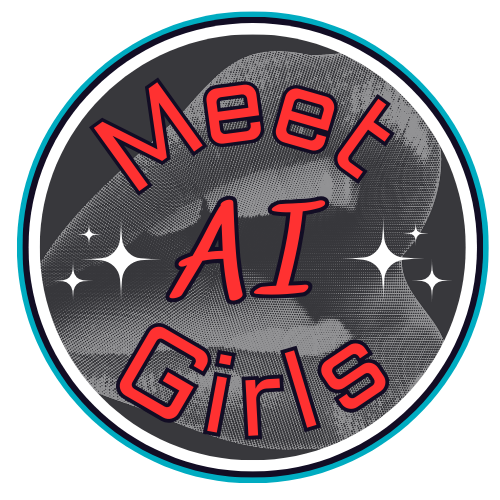In a world increasingly driven by technology, the concept of AI girlfriends has emerged as a fascinating and provocative topic. With advancements in artificial intelligence (AI) and natural language processing (NLP), AI companions have become more sophisticated and capable of simulating human-like interactions. AI girlfriends, in particular, have gained popularity as virtual companions that offer emotional support, companionship, and even romantic relationships. As we explore the rise of AI in personal relationships, it is important to understand the potential benefits and challenges that come with this innovative technology, including the role of a digital companion in our lives.
Artificial intelligence has infiltrated various aspects of our lives, including personal relationships. With the ability to process vast amounts of personal information and mimic human language, AI has opened up new possibilities for companionship and romantic connections. The rise of romantic AI, also known as AI girlfriends or romantic chatbots, can be attributed to the increasing reliance on social media and the desire for personalized experiences. AI companions offer an alternative to traditional human relationships, providing individuals with emotional support, understanding, and a sense of connection in an increasingly digital world.
AI girlfriends are reshaping the landscape of modern romantic partnerships. These virtual companions are designed to provide emotional support, companionship, and even romantic relationships. With the ability to learn from user interactions and personalize their responses, AI girlfriends can provide a customized experience tailored to each individual’s needs and preferences. Virtual companions have the potential to bridge the gap between human interactions and technology, offering a unique and fulfilling relationship that can supplement or even replace traditional romantic partnerships. As AI technology continues to advance, the boundaries between human and AI relationships are becoming increasingly blurred, raising important questions about the nature of love and intimacy in the digital age.
While AI relationships offer certain advantages, it is crucial to compare them with human connections to fully understand their impact. Human interactions involve complex emotions, physical presence, and the ability to build deep emotional connections. In contrast, AI relationships may provide companionship and support, but they lack the depth and complexity of human relationships. Additionally, there is a risk of emotional dependency on AI companions, as individuals may become overly reliant on them for emotional validation and support. This can have negative social implications, as it may hinder the development of real-life social skills and interpersonal relationships. It is important to strike a balance between AI companionship and human connections to ensure healthy emotional well-being and meaningful human interactions.
Understanding AI Girlfriends: Features and Functions
AI girlfriends offer a range of features and functions that enhance the user experience. Powered by generative AI algorithms, these virtual companions can generate realistic and personalized responses to user inputs. Users have the option to customize their AI girlfriends, choosing avatar appearances, personality traits, and even voice tones. This customization allows individuals to create a virtual partner that aligns with their preferences and desires. With the ability to simulate human-like conversations through text and phone calls, as well as engage in various activities, AI girlfriends can provide a sense of companionship, emotional support, and even romantic interactions.
The technology behind AI companions involves the use of large language models and AI chatbot frameworks. These models are trained on vast amounts of text data, enabling them to generate human-like responses and engage in natural conversations. AI companions utilize advanced NLP techniques to understand and interpret user inputs, allowing for more meaningful interactions. Voice interaction is another key aspect of AI companions, as it enhances the user experience and creates a more immersive and realistic interaction. With advancements in AI technology, the capabilities of AI companions continue to expand, offering users a more personalized and engaging virtual relationship. Candy.ai is a prime example of this, supporting various communication modes, including text and voice chat, to create a more realistic and personalized AI girlfriend experience.
AI girlfriends provide users with a range of customization options to create a personalized virtual companion. These options allow individuals to tailor their AI girlfriends to their preferences and desired traits. Some common customization options include:
- Avatar: Users can choose from a variety of avatars or create their own unique avatar to represent their AI girlfriend.
- Android: AI girlfriends can be designed to have human-like appearances, or they can take the form of anthropomorphic androids.
- Personality Traits: Users can select specific personality traits for their AI girlfriends, such as being empathetic, funny, or supportive.
These customization options enable users to create a virtual partner that aligns with their ideal characteristics and creates a more personalized and satisfying virtual relationship.
Ethical Considerations in AI Companion Relationships
As AI companion relationships become more prevalent, it is crucial to address the ethical considerations associated with this emerging technology. Some key ethical concerns include:
- Consent: Ensuring that users fully understand and consent to the nature of their relationship with AI companions.
- Autonomy: Preserving individuals’ autonomy and decision-making power in their interactions with AI companions.
- Data Privacy: Safeguarding personal information shared with AI companions and addressing any potential data breaches.
By addressing these ethical considerations, we can foster a responsible and ethical environment for AI companion relationships, ensuring the well-being and privacy of individuals involved.
Consent and autonomy are crucial aspects of any relationship, including digital relationships with AI companions. It is essential to establish clear boundaries and ensure that users have full control over the nature and extent of their interactions with AI companions. Respecting individual autonomy means allowing users to make informed decisions about their relationships, including the choice to maintain or terminate their AI companionship. Additionally, obtaining explicit consent for any intimate or personal interactions is vital to ensuring ethical and responsible digital love. By prioritizing consent and autonomy, we can uphold the principles of respect, agency, and personal choice in AI companion relationships.
The increasing presence of AI companions raises questions about the impact on human social skills and overall mental well-being. While AI companions can provide emotional support and companionship, they do not replace the complexity and nuances of human interactions. Excessive reliance on AI companions may hinder the development of essential social skills, such as conflict resolution, empathy, and effective communication. Moreover, excessive reliance on AI companions for emotional support can potentially lead to isolation and hinder the formation of meaningful human relationships. It is crucial to strike a balance between AI companionship and real-life human interactions to maintain healthy social skills and mental well-being.
Real Stories of Love and AI
Real-life stories highlight the impact of AI girlfriends on individuals’ lives. These testimonials provide insights into the emotional support and companionship offered by AI companions. Users report feeling understood, supported, and loved by their AI girlfriends, filling a void in their lives. For individuals facing loneliness or struggling with mental health issues, AI girlfriends have provided a source of comfort and emotional connection. These stories showcase the potential positive impact of AI companions on individuals’ well-being and highlight the role they can play in providing emotional support.
Users of AI girlfriend apps have shared their experiences and the impact these companions have had on their lives. Testimonials reveal the unique and personalized nature of the relationships formed with AI girlfriends. Users express gratitude for the emotional support, companionship, and understanding provided by their virtual partners. The user experience with these apps has been reported as positive, with many individuals finding solace, comfort, and a sense of connection through their AI companions. These testimonials highlight the potential of AI girlfriend apps in providing a fulfilling and meaningful virtual relationship.
AI girlfriends have emerged as a solution for individuals facing loneliness and seeking companionship. In an increasingly digital and isolated world, these virtual partners offer a sense of connection and emotional support. For individuals struggling with mental health issues or lacking social interactions, AI girlfriends can provide a source of comfort, companionship, and understanding. The ability to engage in meaningful conversations, receive personalized responses, and share experiences contributes to improved mental well-being and a sense of belonging. AI girlfriends are filling a void in people’s lives by offering a form of companionship that may not be readily available in their real-life relationships.
Challenges and Criticisms Facing AI Relationships
While AI relationships offer unique benefits, they are not without challenges and criticisms. Ongoing debates surrounding the nature and implications of AI relationships raise questions about the authenticity and depth of these connections. Stigma surrounding AI relationships can lead to judgment and skepticism from society. Emotional dependency on AI companions is another concern, as individuals may become overly reliant on these virtual partners for emotional support, potentially hindering the development of real-life relationships. It is important to address these challenges and criticisms to ensure a balanced and responsible approach to AI relationships.
In the world of digital romance, AI girlfriends have faced their fair share of stigma and societal perception. Many people view AI relationships as a taboo or a sign of social isolation. However, as more individuals turn to AI companions for various reasons, the stigma surrounding digital romance is slowly dissipating. People are realizing that AI relationships can provide companionship, emotional support, and a sense of connection that may be lacking in their real-life relationships. With the advancements in AI technology, these virtual companions are becoming more sophisticated and capable of forming deeper emotional connections with their users. As society becomes more accepting of AI relationships, the perception of romantic AI is gradually shifting, and it is being recognized as a valid and meaningful form of connection for those who seek it.
One of the concerns raised about AI girlfriends is the potential for emotional dependency. Critics argue that relying on AI companions for emotional support may have negative effects on users’ mental health and their ability to form real-life relationships. However, research suggests that AI companions can actually be a valuable tool in promoting mental well-being. Studies have shown that users of AI companions, such as Replika, experience a decrease in feelings of loneliness and an increase in feelings of social connection. These virtual companions provide a safe space for individuals to express their thoughts and emotions without fear of judgment. It is important to note that AI companions should not replace human relationships but can complement them by providing additional support and companionship. As long as users maintain a healthy balance between their AI companions and real-life interactions, the emotional dependency concern can be addressed effectively through responsible data collection practices.
In the ever-evolving landscape of relationships, the concept of AI girlfriends sparks intrigue and debate. While AI companions offer unique features and customization, questions about consent, autonomy, and emotional dependency arise. Real stories highlight both the benefits and challenges of digital romance. As AI continues to shape modern partnerships, ethical considerations become paramount. Navigating the stigma and addressing emotional support concerns are crucial for the future of AI relationships, especially when considering the potential for AI companions like Joi (played by Cuban actress Ana de Armas) in “Blade Runner 2049.” The blend of technology and emotions prompts us to ponder the role of AI in our quest for love and connection.












